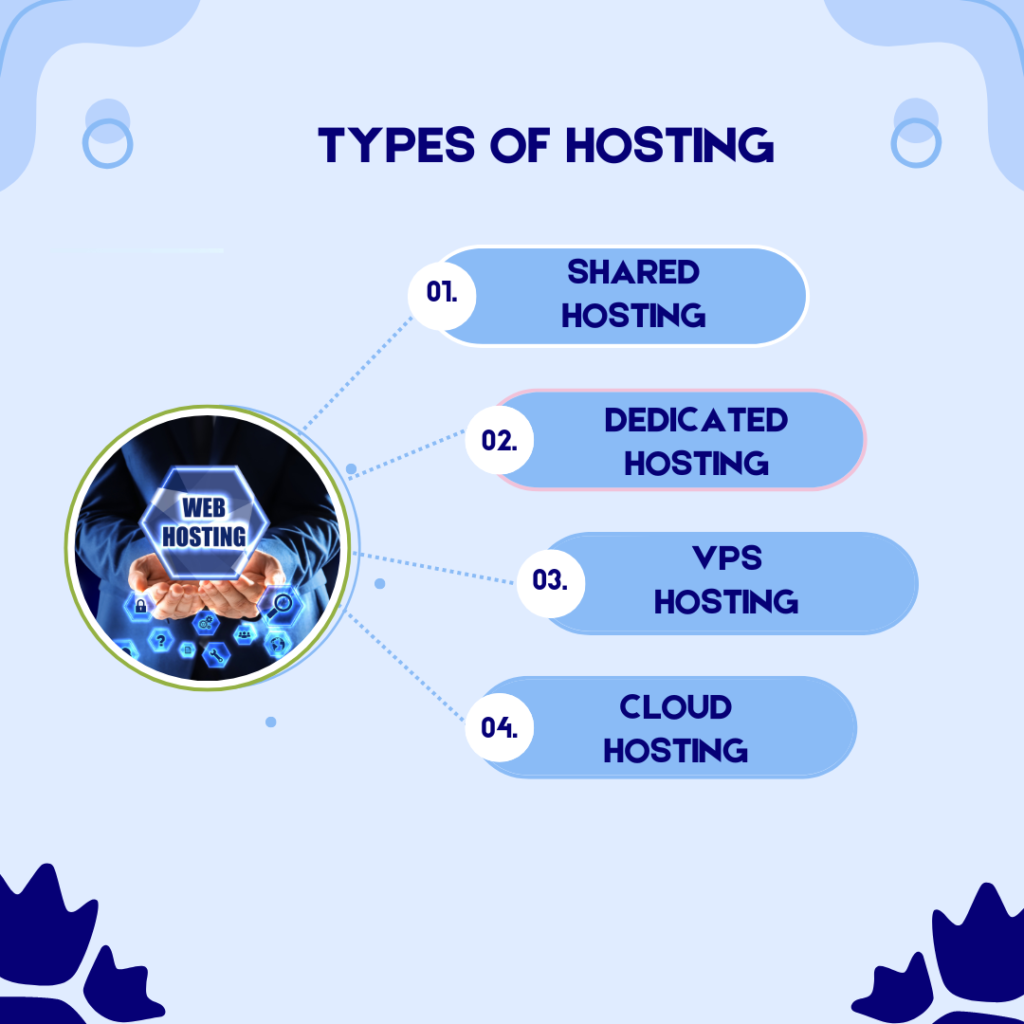There are several types of hosting services available, each catering to different needs and budgets. Here are some common types:
- Shared Hosting:
- Shared hosting is like living in an apartment building where multiple tenants share common facilities.
- Several websites reside on the same server, sharing resources such as RAM, CPU, storage, and bandwidth.
- It’s the most cost-effective option, making it popular for small business websites, personal blogs, and early-growth startups.
- Advantages:
- Affordable.
- Easy setup.
- Maintenance handled by the hosting provider.
- Disadvantages:
- Limited resources.
- Security risks if a neighbor site gets compromised.
- Less control over server settings.
- Best for: Small self-hosted websites, hobby bloggers, and small business websites.
- Virtual Private Server (VPS) Hosting:
- VPS hosting is an upgrade from shared hosting.
- You still share the physical server space with others, but your website resides on an independent virtual “real estate.”
- Advantages:
- More resources and control.
- Better performance.
- Isolation from other users.
- Disadvantages:
- Higher cost than shared hosting.
- Requires some technical knowledge.
- Dedicated Hosting:
- In dedicated hosting, your website resides on a dedicated server.
- Best suited for large websites with high traffic.
- Advantages:
- Strong database support.
- Unlimited software options.
- Complete root access to your server.
- Disadvantages:
- Expensive.
- Requires advanced skills.
- Cloud Hosting:In dedicated hosting, your website resides on a dedicated server.Best suited for large websites with high traffic.
- Advantages:
- Strong database support.
- Unlimited software options.
- Complete root access to your server.
- Disadvantage
- Expensive.
- Requires advanced skills.

